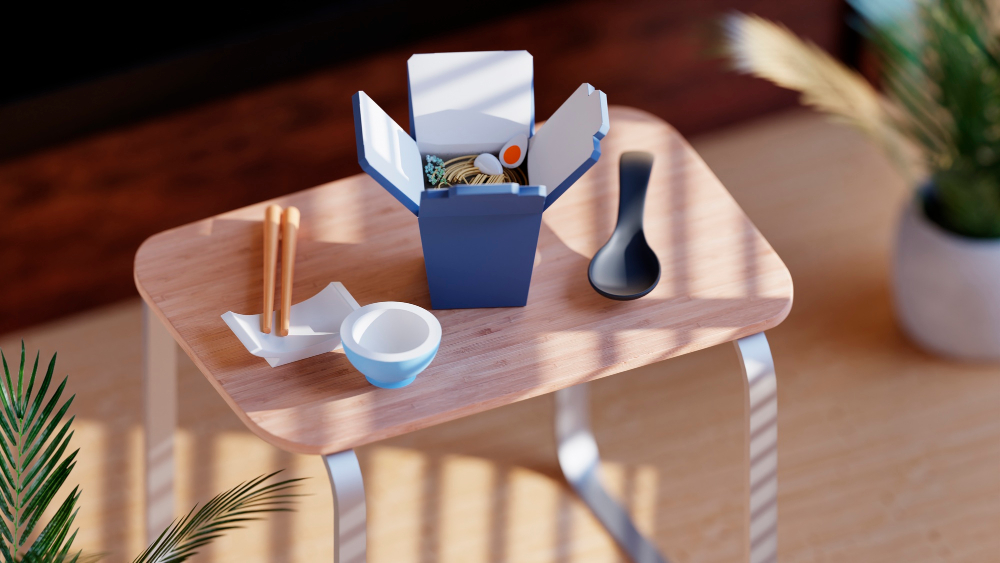Biodegradable vs. Reusable Tableware: Which is the Future?

The hospitality industry in the UAE, including hotels, resorts, event management companies, caterers, and restaurants, is rapidly shifting towards sustainable dining solutions. With growing environmental awareness, businesses must choose between biodegradable tableware and reusable tableware to reduce their carbon footprint and align with eco-friendly practices. But which one is the future? Let's explore.
Biodegradable Tableware: A Step Towards Zero Waste
Biodegradable tableware is made from natural materials like bamboo, sugarcane bagasse, cornstarch, and palm leaves. These eco-friendly alternatives decompose naturally, reducing waste accumulation in landfills.
Benefits of Biodegradable Tableware
Eco-friendly & Compostable: Breaks down naturally without harming the environment.
Single-Use Convenience: Ideal for large-scale events, catering services, and takeaway businesses.
Reduces Carbon Footprint: Made from renewable resources, minimizing pollution.
Compliance with UAE Sustainability Goals: Aligns with government initiatives such as UAE Vision 2030 and Dubai’s ban on single-use plastics.
Challenges of Biodegradable Tableware
Higher Costs: Compared to plastic, biodegradable options can be expensive.
Limited Durability: May not withstand high temperatures or extended use.
Proper Disposal Required: Needs composting facilities to maximize its environmental benefits.
Reusable Tableware: The Long-Term Sustainable Choice
Reusable tableware, such as stainless steel, glass, melamine, and ceramic, offers a long-lasting solution for eco-conscious hospitality businesses.
Benefits of Reusable Tableware
Cost-Effective in the Long Run: Initial investment is high, but savings accumulate over time.
Durability & Quality: Provides a premium dining experience for luxury hotels and fine-dining restaurants.
Minimal Waste Production: Reduces reliance on disposable products, contributing to a circular economy.
Energy-Efficient Cleaning Solutions: Many UAE-based hotels and resorts use energy-efficient dishwashers to minimize water and electricity consumption.
Challenges of Reusable Tableware
Higher Upfront Investment: Purchasing and maintaining reusable tableware can be costly.
Storage & Cleaning Requirements: Requires dedicated space and labor for washing and sanitizing.
Not Suitable for All Events: Large-scale events and outdoor catering might struggle with logistics.
The Future of Sustainable Tableware in UAE Hospitality
Both biodegradable and reusable tableware have their place in the UAE hospitality sector. Hotels, resorts, and event managers are increasingly adopting hybrid solutions that combine both options:
Luxury Hotels & Fine-Dining Restaurants: Prioritizing reusable tableware for premium experiences.
Event Management Companies & Catering Services: Using biodegradable tableware for large-scale outdoor events.
Eco-Friendly Resorts & Cafés: Opting for innovative solutions like edible cutlery and compostable packaging.
Choosing the Right Tableware for Your Business
For UAE-based hospitality businesses, the choice between biodegradable and reusable tableware depends on various factors like budget, environmental goals, and operational feasibility. Investing in sustainability enhances brand reputation, attracts eco-conscious customers, and ensures compliance with UAE’s green regulations.
Conclusion
Sustainability in tableware is no longer an option but a necessity for the UAE’s hospitality industry. Whether you choose biodegradable tableware for convenience or reusable tableware for longevity, adopting eco-friendly solutions will set your business apart in the competitive market.
Looking for sustainable tableware solutions in UAE? Visit Elite Hospitality to explore high-quality, eco-friendly options for your hotel, resort, event, or catering business.



